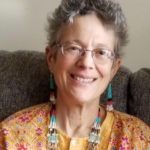Reflections from Rabbi Klirs

This year the months of January and February correspond fairly closely with the Hebrew months of Tevet and Shevat, respectively. The Tenth of Tevet (falling on Jan. 7) is a minor fast day, commemorating the beginning of the siege of Jerusalem by the Romans in the year 70 of the Common Era. The 15th of Shevat (falling on Feb. 10), or “Tu Bishvat,” is known as the New Year of the Trees. It’s a time to reconnect with the Land of Israel, especially the variety of its fruit-bearing trees and plants. Planting a tree in Israel through the Jewish National Fund is a well-established Tu Bishvat activity. Another is to participate in a Tu Bishvat Seder, at which we taste many of the fruits and nuts typical to the Land of Israel. This year I again look forward to conducting a Tu Bishvat Seder at Temple Beth Shalom, during my visit the Shabbat of Feb. 7-8.
In January I’ll be introducing a new topic for “Nosh and Knowledge” on Shabbat mornings – Pirkei Avot, or Chapters of the Fathers, a section of the Mishnah entirely devoted to ethical teachings of the ancient rabbis. The sayings are mostly in the form of pithy and memorable maxims. Some of them are very well known, even to those otherwise not versed in the Mishnah and Talmud. Perhaps the best-known example is: “Hillel said: If I am not for myself, who will be for me? But if I am only for myself, what am I? And if not now, when?” Come and explore this and many other examples from Pirkei Avot, along with commentaries and explanations from the tradition. For our text we will use Gates of Prayer, which contains extensive selections from Pirkei Avot.
I would also like to take this opportunity to thank the members of Temple Beth Sholom for the most generous and kind Chanukah gift to Elisha and myself. It helped make our holiday brighter celebration with our family more special!
